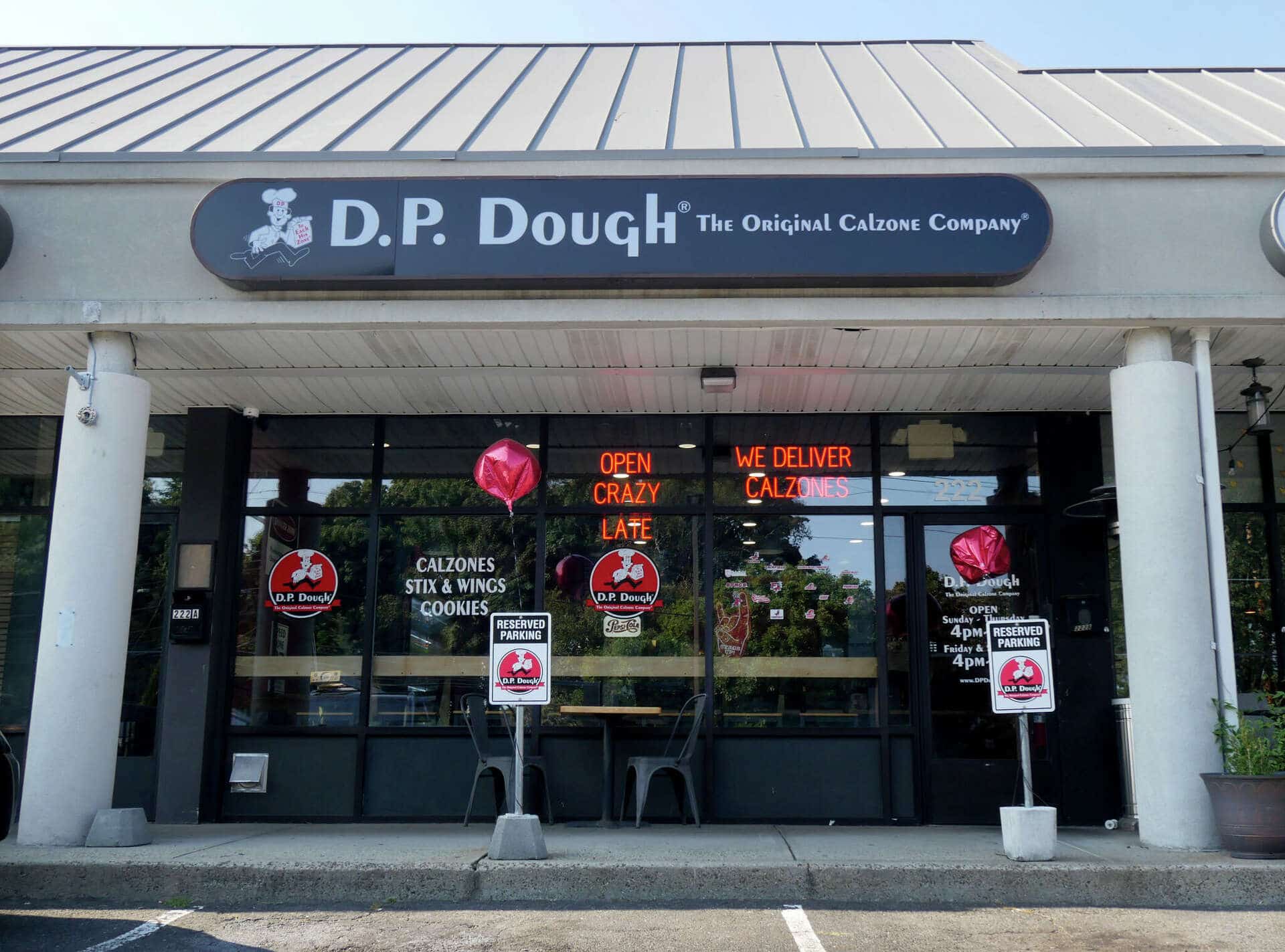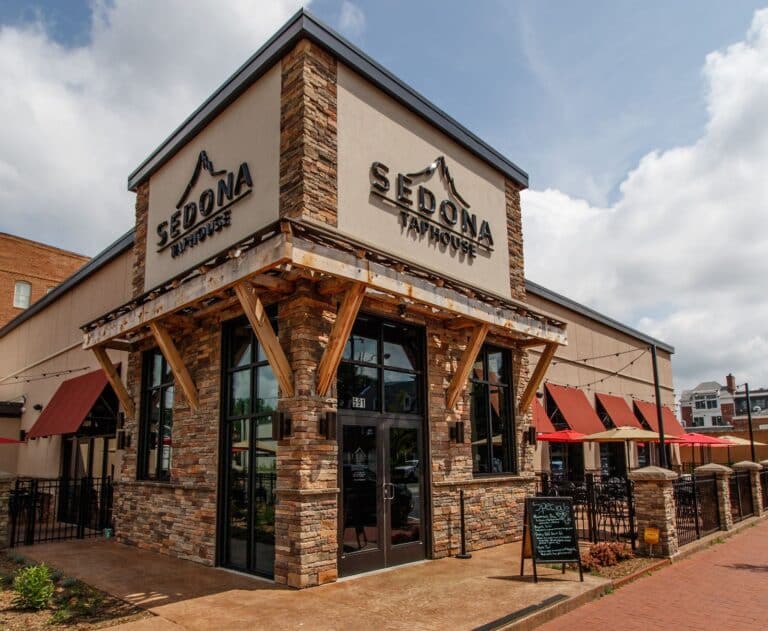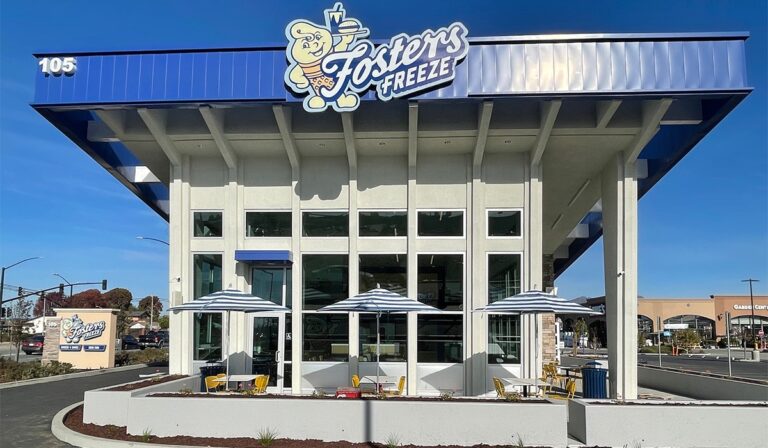D.P. Dough Franchise FDD, Profits & Costs (2025)

D.P. Dough is a fast-casual restaurant franchise known for its specialty in calzones and its appeal to the late-night crowd. Marketed as “the pizza alternative,” the brand originated in 1983 when Penny Haley began selling calzones from a food truck in Springfield, Massachusetts.
A few years later, in 1987, the first brick-and-mortar location opened in Amherst, Massachusetts, founded by Dan and Penny Haley — whose initials inspired the name “D.P. Dough.”
The company is now based in Columbus, Ohio, and operates under Calzone King, LLC. D.P. Dough began franchising in 1996 and has steadily expanded its footprint in college towns across the United States.
Its business model revolves around serving students and young adults, focusing on late-night delivery and takeout options designed to meet the demand for quick, filling food during off-hours.
The menu features about 20 signature calzones, plus customizable options for those who prefer to create their own combinations. Customers can also enjoy wings, tater tots, breadsticks, and dessert calzones. Unlike traditional pizza chains, D.P. Dough differentiates itself by exclusively offering calzones, carving out a distinctive position in the fast-casual dining market.
Initial Investment
How much does it cost to start a D.P. Dough franchise? It costs on average between $121,000 – $360,000 to start a D.P. Dough franchised restaurant.
This includes costs for construction, kitchen equipment, initial inventory, and opening expenses. The total investment varies based on several factors, such as the restaurant’s size and layout, the city or college market where it operates, and whether the franchisee leases or purchases the property.
| Type of Expenditure | Amount |
|---|---|
| Initial Franchise Fee | $40,000 |
| Rent | $1,200 – $6,500 per month |
| Security Deposits | $1,200 – $6,500 |
| Leasehold Improvements | $10,000 – $115,000 |
| Architect | $0 – $8,000 |
| Equipment and Fixtures | $25,000 – $65,000 |
| Equipment Install and Set Up | $0 – $13,175 |
| Real Estate Selection and Construction Management | $0 – $20,000 |
| Point of Sale System (including license and equipment) | $3,150 |
| Opening Inventory | $4,000 – $8,500 |
| Start Up Print Package | $1,500 – $2,000 |
| Local Advertising & Grand Opening | $1,500 – $7,975 |
| Insurance | $3,000 – $7,639 |
| Signs | $3,000 – $8,000 |
| Employee Training Labor | $2,500 – $5,000 |
| Travel and Living Expenses During Training | $1,500 – $2,500 |
| Professional Support (Attorneys and Accountants) | $1,000 – $2,500 |
| Permits and Fees | $480 – $600 |
| Utility Deposits | $0 – $3,000 |
| Office Supplies | $250 – $1,500 |
| Phone System | $200 – $1,000 |
| Security System and Cameras | $1,000 – $1,871 |
| Additional Funds for 3 Months of Operating Expenses | $20,500 – $30,500 |
| Total | $120,980 – $359,910 |
D.P. Dough Franchise Disclosure Document
Frequently Asked Questions
How many D.P. Dough locations are there?
As of the latest data, D.P. Dough operates approximately 58 locations across the United States. The majority of these units are franchise-owned, with only a few company-owned stores managed directly by the brand.
What is the total investment required to open a D.P. Dough franchise?
The total investment required to open a D.P. Dough franchise ranges from $121,000 to $360,000.
What are the ongoing fees for a D.P. Dough franchise?
D.P. Dough franchisees pay an ongoing royalty fee of 4% of gross sales. In addition, they contribute 1% of gross sales to a national advertising fund that supports brand-wide marketing and promotional efforts.
Who owns D.P. Dough?
D.P. Dough franchise is owned by Calzone King, LLC, a company based in Columbus, Ohio.
Disclaimer
Disclaimer: This content has been made for informational and educational purposes only. SharpSheets is an independent educational resource and is not affiliated with, endorsed by, or representing any franchisor mentioned on this website. Where noted, figures are taken from the franchisor’s Franchise Disclosure Document (FDD). In some cases, we may provide independent calculations or estimates based on publicly available information. We do not make any representation or warranties with respect to the accuracy, applicability, fitness, or completeness of the information presented in the article. You should not construe any such information or other material as legal, tax, investment, financial, or other professional advice. Nothing contained in this article constitutes a solicitation, recommendation, endorsement, advertisement, or offer to buy or sell any franchises, securities, or other financial instruments in this or in any other jurisdiction in which such solicitation or offer would be unlawful under the franchise and/or securities laws of such jurisdiction.
All content in this article is information of a general nature and does not address the detailed circumstances of any particular individual or entity. Nothing in the article constitutes professional and/or financial and/or legal advice, nor does any information in the article constitute a comprehensive or complete statement of the matters discussed or the law relating thereto. You alone assume the sole responsibility of evaluating the merits and risks associated with the use of any information or other content in this article before making any decisions based on such information or other content.




